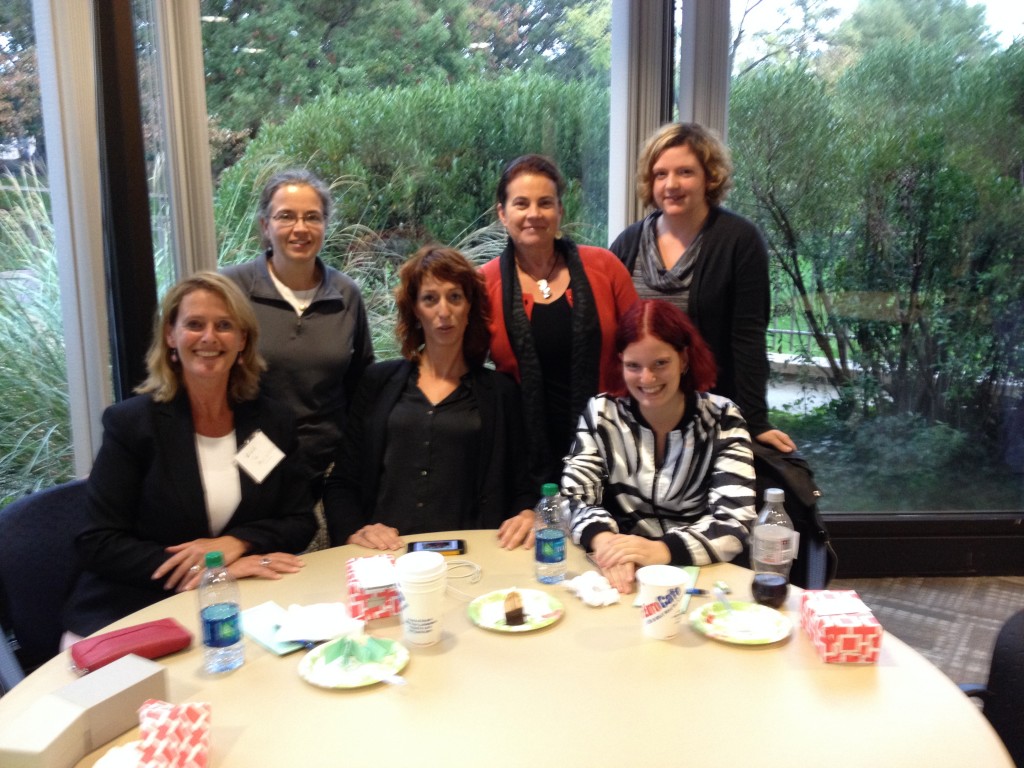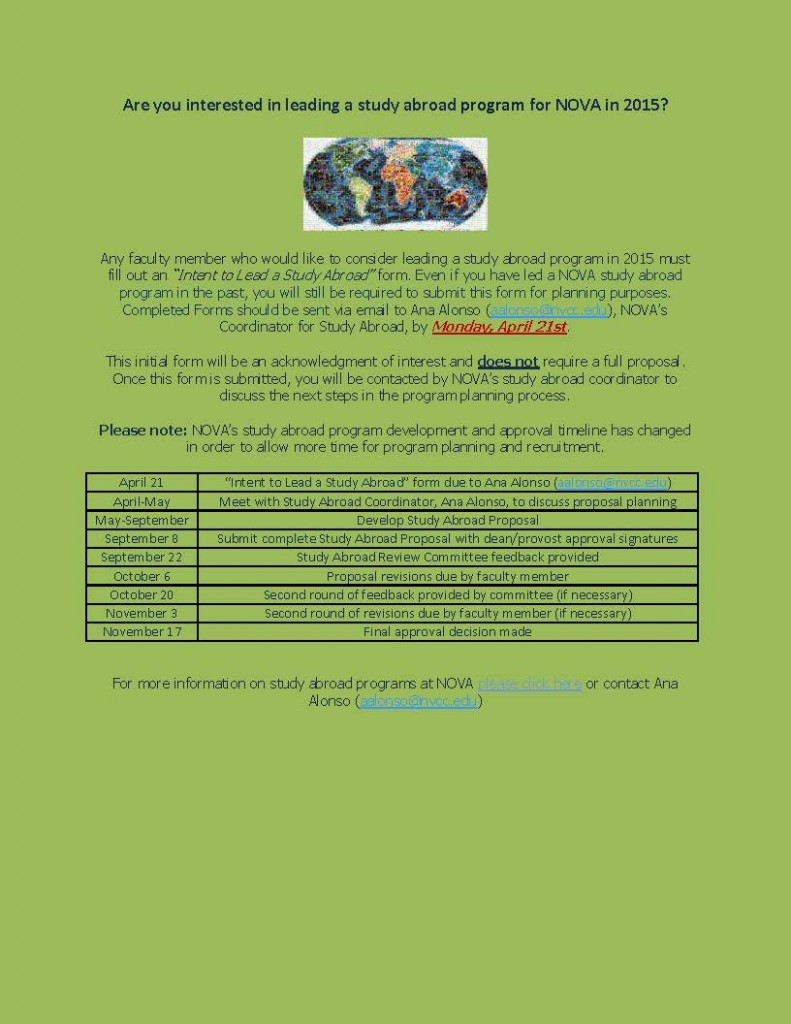Fulbright Program Seeks to Get More Community Colleges Involved in Exchanges
When someone mentions the Fulbright Program, it often evokes images of venerable researchers from elite institutions traveling to far-flung corners of the world. But the U.S. State Department is doing more to make sure that faculty members and others from community colleges also benefit from the exchange program, with the goal of getting more international perspectives into community-college campuses and classrooms.
Like those enrolled at four-year colleges, community-college students will be entering an increasingly globalized work force. But they often have fewer opportunities to study abroad because many of them work, have families, or face financial hardships. What’s more, while more international students are coming to community colleges in recent years, students from overseas tend to enroll at research institutions—meaning students at two-year institutions have far fewer opportunities to meet or share views with a foreign peer.
To help bridge that global-knowledge gap, the department’s Bureau of Educational and Cultural Affairs, which administers Fulbright, says it plans to step up efforts to promote opportunities to students, instructors, and administrators at two-year institutions. In emails, webinars, and presentations at community-college events, it’s pitching exchanges, like one that sends community-college administrators to Russia for two weeks to share ideas about vocational education.
The Fulbright Program, which is actually a collection of a dozen or sodifferent exchanges, is also promoting several that bring foreign scholars or language instructors to teach at community colleges, minority-serving institutions, and small liberal-arts colleges.
‘International Awareness’
Hosting foreign participants helps campuses enhance language instruction, while “sending faculty and administrators abroad provides them with the skills needed to jump-start campus internationalization and build long-term connections abroad,” Meghann Curtis, the department’s deputy assistant secretary of state for academic programs, wrote in an email to The Chronicle. The department says the focus on community colleges dovetails with the White House’s recent spotlight on the important role played by two-year institutions.
To be sure, top-tier universities will probably always produce the most scholars who win Fulbright awards to go abroad. Applicants generally need a Ph.D. to participate in the core U.S. Scholar program, but community-college instructors lacking doctorates can apply for grants through thestudent program, which requires only a bachelor’s degree.
Community colleges are working to make sure that instructors on their campuses are aware of such opportunities.
“We’re trying to get the word out that not all Fulbrights require Ph.D.’s and that community-college faculty can be just as competitive,” said Stacey Bustillos, a former Fulbright program officer who coordinates international programs for Northern Virginia Community College. Because their main focus is on teaching, “their experiences will have a direct impact in the classroom.”
Ms. Bustillos has posted notices and co-hosted events with the college’s Center for Excellence in Teaching and Learning, and has offered sessions at pedagogy workshops on how to apply for grants.
With 1,900 international students and a growing immigrant population in the region, Northern Virginia has jumped on the opportunity Fulbright provides to expand its global reach. Four faculty members have won grants to study abroad—in Russia, Bosnia, and South Korea—in the past few years, and the system’s six campuses have taken turns hosting scholars from China and India.
“We have 180 countries represented across our students, faculty, and staff, so bringing in outside perspectives and cultural sensitivities is extremely important,” Ms. Bustillos said.
Miguel B. Corrigan, an associate professor of business at Northern Virginia’s Loudoun campus, spent last year teaching entrepreneurship and related topics at a college in Saratov, Russia. Next year a scholar he linked up with there, whose academic interests include fighting corruption, will come to the Virginia college to teach public administration.
Among other participating institutions, Broward College, in Florida, has developed partnerships with campuses in Russia; Skyline College, in California, offers Tagalog classes taught by teaching assistants from the Philippines; and Davidson County Community College, in North Carolina, has Arabic and Russian instruction taught by native speakers.
“About 40 percent of our students will go directly into the work force, where globalization is becoming increasingly important,” said Wayne C. Wheeler, director of international programs and services for the American Association of Community Colleges. “Since study abroad isn’t a viable option for many of our students, the Fulbright Program is one way colleges can bring the world to their campuses.”
Katherine Mangan writes about community colleges, completion efforts, and job training, as well as other topics in daily news. Follow her on Twitter@KatherineMangan, or email her at katherine.mangan@chronicle.com.
When someone mentions the Fulbright Program, it often evokes images of venerable researchers from elite institutions traveling to far-flung corners of the world. But the U.S. State Department is doing more to make sure that faculty members and others from community colleges also benefit from the exchange program, with the goal of getting more international perspectives into community-college campuses and classrooms.
Like those enrolled at four-year colleges, community-college students will be entering an increasingly globalized work force. But they often have fewer opportunities to study abroad because many of them work, have families, or face financial hardships. What’s more, while more international students are coming to community colleges in recent years, students from overseas tend to enroll at research institutions—meaning students at two-year institutions have far fewer opportunities to meet or share views with a foreign peer.
To help bridge that global-knowledge gap, the department’s Bureau of Educational and Cultural Affairs, which administers Fulbright, says it plans to step up efforts to promote opportunities to students, instructors, and administrators at two-year institutions. In emails, webinars, and presentations at community-college events, it’s pitching exchanges, like one that sends community-college administrators to Russia for two weeks to share ideas about vocational education.
The Fulbright Program, which is actually a collection of a dozen or sodifferent exchanges, is also promoting several that bring foreign scholars or language instructors to teach at community colleges, minority-serving institutions, and small liberal-arts colleges.
‘International Awareness’
Hosting foreign participants helps campuses enhance language instruction, while “sending faculty and administrators abroad provides them with the skills needed to jump-start campus internationalization and build long-term connections abroad,” Meghann Curtis, the department’s deputy assistant secretary of state for academic programs, wrote in an email to The Chronicle. The department says the focus on community colleges dovetails with the White House’s recent spotlight on the important role played by two-year institutions.
To be sure, top-tier universities will probably always produce the most scholars who win Fulbright awards to go abroad. Applicants generally need a Ph.D. to participate in the core U.S. Scholar program, but community-college instructors lacking doctorates can apply for grants through thestudent program, which requires only a bachelor’s degree.
Community colleges are working to make sure that instructors on their campuses are aware of such opportunities.
“We’re trying to get the word out that not all Fulbrights require Ph.D.’s and that community-college faculty can be just as competitive,” said Stacey Bustillos, a former Fulbright program officer who coordinates international programs for Northern Virginia Community College. Because their main focus is on teaching, “their experiences will have a direct impact in the classroom.”
Ms. Bustillos has posted notices and co-hosted events with the college’s Center for Excellence in Teaching and Learning, and has offered sessions at pedagogy workshops on how to apply for grants.
With 1,900 international students and a growing immigrant population in the region, Northern Virginia has jumped on the opportunity Fulbright provides to expand its global reach. Four faculty members have won grants to study abroad—in Russia, Bosnia, and South Korea—in the past few years, and the system’s six campuses have taken turns hosting scholars from China and India.
“We have 180 countries represented across our students, faculty, and staff, so bringing in outside perspectives and cultural sensitivities is extremely important,” Ms. Bustillos said.
Miguel B. Corrigan, an associate professor of business at Northern Virginia’s Loudoun campus, spent last year teaching entrepreneurship and related topics at a college in Saratov, Russia. Next year a scholar he linked up with there, whose academic interests include fighting corruption, will come to the Virginia college to teach public administration.
Among other participating institutions, Broward College, in Florida, has developed partnerships with campuses in Russia; Skyline College, in California, offers Tagalog classes taught by teaching assistants from the Philippines; and Davidson County Community College, in North Carolina, has Arabic and Russian instruction taught by native speakers.
“About 40 percent of our students will go directly into the work force, where globalization is becoming increasingly important,” said Wayne C. Wheeler, director of international programs and services for the American Association of Community Colleges. “Since study abroad isn’t a viable option for many of our students, the Fulbright Program is one way colleges can bring the world to their campuses.”
Katherine Mangan writes about community colleges, completion efforts, and job training, as well as other topics in daily news. Follow her on Twitter@KatherineMangan, or email her at katherine.mangan@chronicle.com.
http://chronicle.com/article/Fulbright-Program-Seeks-to-Get/189977/




